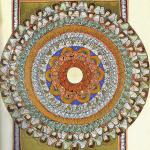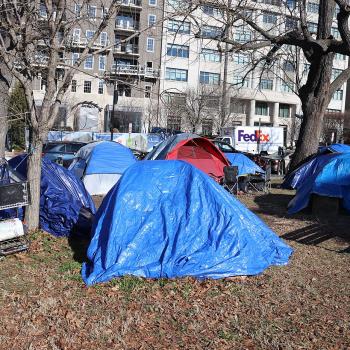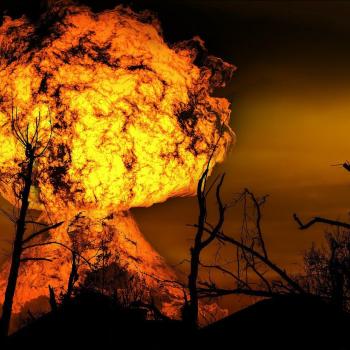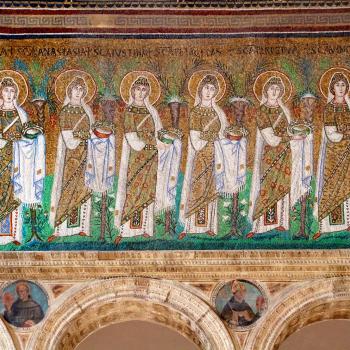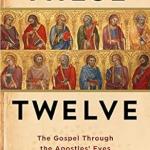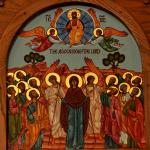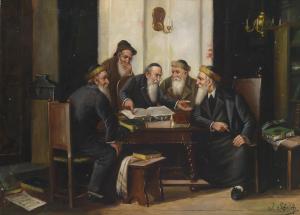 Silence in a time of injustice allows such injustice to continue. Silence in the face of the evil allows such evil to grow without opposition. To be sure, often such silence is coerced as those who stand silent do so out of fear of reprisals. Others stand silent out of ignorance. But there comes a time when people need to overcome their fear and make a stand against evil; if they do not, then they become guilty of aiding and abetting such evil. Or, as several sages in the Talmud indicated, those who do not stand up and protest against evil share in the evil which is being done:
Silence in a time of injustice allows such injustice to continue. Silence in the face of the evil allows such evil to grow without opposition. To be sure, often such silence is coerced as those who stand silent do so out of fear of reprisals. Others stand silent out of ignorance. But there comes a time when people need to overcome their fear and make a stand against evil; if they do not, then they become guilty of aiding and abetting such evil. Or, as several sages in the Talmud indicated, those who do not stand up and protest against evil share in the evil which is being done:
Rav and R. Hanina, R. Yohanan and R. Hanina taught: Whoever has the opportunity to protest the misdeeds of his household and fails to do so shares in the misdeeds of his household; whoever has the opportunity to protest the misdeeds of his city and does not do so shares in the misdeeds of his city; and whoever has the opportunity to protest the misdeeds of the world and does not do so shares in the misdeeds of the world. [1]
Those Americans who do not protest the misdeeds of the United States share in the misdeeds of the United States.
When it is easy for a person to kill someone else in a fit of rage with a gun and be told it is fine because they are standing their ground, even though there is no risk to life involved in the confrontation, it is time for Americans to speak up and protestant and demand reforms.[2] When the rich get richer due to tax cuts leads to a budget crisis and the elderly and the poor experience cut backs to help pay for the tax cuts, it is time for Americans to speak up and protest When the United States does not properly help Puerto Rico, a territory of the United States, recover from the destruction wrought by Hurricane Maria, but instead its leaders are found to be are aiding and abetting the powers that be which are destroying the lives of those living in Puerto Rico, it is time for Americans to speak up and protest.
Often, protests are squashed out of concerns of civility. That is, while grave injustice is being done and innocent people’s lives are being ruined, many people do not want to be seen to cause problems to those who are in power. They feel they must follow basic social standards which suggest how authorities are to be addressed, and those who do not follow such standards can be ignored. It is seen worse to be rude than it is to be unjust, which of course, benefits the unjust as they can appear perfectly charming and civil as they have the power and risk nothing appearing to be so debonair. But this is not how it should be; the Sufi Fozel ebn `Ayāz, as recorded by Farīd al-Dīn ʿAṭṭār, said that “People who are alienated from one another resort to etiquette. Whenever etiquette is eliminated, they can look at one another frankly.”[3] Social etiquette often is the basis by which alienation and true degradation of the underclass is fermented and strengthened; so long as something so artificial is enforced over justice, and society falls for the pleas of civility over justice, society shares in the evil which it supports in the name of civility. Thus, we must come to understand that it is better to be unconcerned about social etiquette and have a heart for justice than it is to be concerned about civility and social mores: is that not the lesson found in the life of Jesus as he showed little to no concern about social etiquette when he found himself confronted with injustice?
Equity, as Lactantius understood, is necessary for justice; it is not just any kind of equity, but one which looks and honors everyone equally, regardless of social status:
The other part of justice is equity. I do not speak of the equity of judging well, which is itself laudable in a just man, but I mean that of equalizing self with fellow-men, which Cicero calls equability. God, who creates and inspires men wished them all to be fair, that is, equal. He set the same condition of living for all; He begot all unto wisdom; He promised immortality to all. No one is segregated from His heavenly benefits. [4]
Civility often accords artificial honors upon some, so that if someone is seen to disregard such honor, they are accused of incivility. But, as Lactantius indicated, justice seeks equity among persons, to have people equalize themselves with others, so that they can have compassion upon them and their suffering. “It is not good to be partial to a wicked man, or to deprive a righteous man of justice” (Prov. 18:5 RSV). Calls for civility serve as calls to silence protests against injustice as the wicked are supported and the innocent suffer.
This is not to say there is no room for leaders who know how to speak in civility. There is a time and place for it. It has its function. But it must be judged accordingly, and with due respect to the circumstances and the injustices being fought. When resistance grows to evil authorities, those who resist evil will be acting against public policy, indeed, they will be seen as violating the law of the land. Instead of using that as a reason to ignore them, they must be upheld as those who seek the good necessary for civil society to remain. If evil grows without opposition, it will eventually self-destruct, with the society which embraced evil facing the consequences of that embrace. This is what the sages of the Talmud suggested happened to Jerusalem: the city was destroyed because its people lost their integrity: “Rava said: Jerusalem was destroyed because people of integrity ceased there.”[5] This was because no one was willing to reprimand others, out of a desire for artificial civility:
Amram the son of R. Simeon b. Abba said in the name of R. Simeon b. Abba who said in the name of R. Hanina: Jerusalem was destroyed because her people did not reprimand one another.[6]
History often shows how the rich and powerful destroy civil society. They take away from the poor and the weak, often through the force of law, which is what Lactantius explained in his Divine Institutes:
For not only did they for whom there was some abundance not share with others, but they even took away the goods of others, drawing in all things under their own private gain, and the things which individuals were working on before for the use of all were conferred upon the homes of the few. In order to subject the rest to slavery, firstly, they began to steal away and pile up the necessities of life and keep them tightly closed up, so that they might keep the celestial benefits their own, not on account of their kindly human nature was not in them all, but to rake up all things as instruments of their greed and avarice. They also passed laws for themselves and sanctioned, under the name of justice, those most unfair and unjust measures by which they protected their thefts and avarice against the multitude. Therefore, they availed as much by authority as by strength or resources or evil.[7]
Civility which demands not only that the rule of laws to be followed, but also the social mores which society has developed which go beyond the law, to be followed, whether or not the demands are just, supports the destruction of society from within. The rich and powerful use calls for civility to defend themselves from any and all opposition while they show no care or concern for those they hurt. Society, government, should be for the common good. Civility can help enforce the common good when it is not under threat, but when it is, civility is of lesser concern. Resistance to evil must be the concern. Anything less, and society and those who support such evil through silence will find the consequences of that evil unbearable as society collapses in on itself, ruining the fortunes of many for generations to come.
[IMG=Die Talmud-Stunde by By J. Scheich (Dorotheum) [Public domain], via Wikimedia Commons]
[1] The Talmud. Selected Writings. Trans. Ben Zion Bokser (New York: Paulist Press, 1989),88. [Tractate Shabbat]
[2] It is even worse when stand your ground laws are not applied equally for all. When African Americans find themselves being charged when shooting someone in self-defense while Caucasians would less likely be charged, and Caucasians find themselves not being charged in situations which fail to meet the demands to support the shooting as being done out of self-defense, the law then is being used not for justice, but for its subversion.
[3] Farīd al-Dīn ʿAṭṭār, Lives and Sayings of the Sufis. Trans. Paul Losensky (New York: Paulist Press, 2009), 123 [Fozel ebn `Ayāz]
[4] Lactantius, The Divine Institutes. Trans. Sister Mary Francis McDonald, OP (Washington, DC: CUA Press, 1964), 364.
[5] The Talmud. Selected Writings, 94. [Tractate Shabbat]
[6] The Talmud. Selected Writings,, 93. [Tractate Shabbat]
[7] Lactantius, The Divine Institutes, 341.
Stay in touch! Like A Little Bit of Nothing on Facebook



